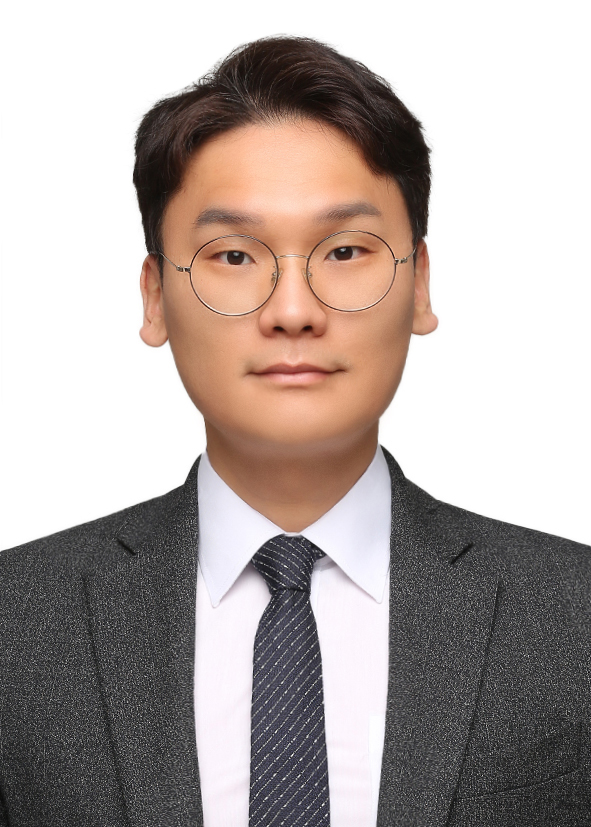News & Event
Alumni Interview
- HOME
- News & Event
- Alumni Interview
- Author
- 전기전자컴퓨터공학부
- Views
- 343
- Registraion Date
- 2025-09-01
Professor Yongwoo Lee, Inha University – “Following the Fun Path Brought Me Here”
■ Self-Introduction and Current Research
Professor Yongwoo Lee of the Department of Electrical and Computer Engineering at Inha University is a rising cryptographer recognized both domestically and internationally. His main research areas are Post-Quantum Cryptography (PQC) and Homomorphic Encryption.
“I entered GIST in 2011 as part of the 2nd graduating class. I majored in Electrical and Computer Engineering during undergrad and continued to focus on cryptography throughout my master’s and Ph.D. studies. These days, I’m especially working on interesting problems in homomorphic encryption.” His tone is modest, but he added, “I can’t reveal details yet, but I’ve found a really exciting problem-solving approach,” showing clear anticipation for his current research.
■ Why He Chose GIST and First Impressions
He had three reasons for choosing GIST:
-
The system of declaring a major in the 3rd year.
“I liked that I could explore different fields first and find what suited me best. At the time, it was a new university, but I saw the flexible and innovative curriculum as an advantage.” -
Broad liberal arts education.
“I could take a wide range of courses outside my major—physical education, philosophy, Korean literature, and more. They weren’t just hobby classes; they broadened my way of thinking and perspectives.” -
Opportunities for overseas training.
“At the time, the school promised opportunities to study abroad, especially in the U.S. I felt strongly that the school would invest a lot in me.”
■ Impact of GIST’s Liberal Arts Courses
Professor Lee emphasizes that liberal arts courses were a valuable asset from his GIST years.
From Professor Yongjoo Lee’s philosophy class, he learned critical thinking and how to approach problems from multiple perspectives. Korean literature courses built a foundation for writing and expression. Professor Alice Lee’s English presentation course later proved invaluable in international conferences and collaborations.
“At the time, I just found them fun, but looking back, those courses gave me the confidence to present my research and lecture in public.”
He credits GIST’s liberal arts program for giving him experiences that expanded his worldview, not just his technical knowledge.
■ Shifts in Major and Career Path
Initially, he was interested in physics. In fact, he once received a D in his freshman programming course, showing little interest in computers.
But Professor Kin-Choong Yow’s algorithms class became a turning point:
“The logical structure and problem-solving aspect of algorithms fascinated me. That’s when I switched to Electrical and Computer Engineering.”
Later, he minored in biology to explore convergence with computing, and for his undergraduate thesis, he researched Brain-Computer Interfaces (BCI). He entered graduate school intending to pursue communications but soon realized cryptography was his true passion, eventually focusing on homomorphic encryption during his Ph.D.
■ Memorable Research Experience
The most grueling yet rewarding experience for him was participating in the PQC (Post-Quantum Cryptography) standardization project.
“Cryptographers from all over the world reviewed my algorithm and sent attack ideas. Every day brought questions and criticisms, and I constantly had to respond, revise, and retest.”
Even during a vacation in Vietnam, he spent entire days on his laptop handling feedback.
“It was mentally tough, but it was also an invaluable experience of having my work tested on the global stage. It sharpened my problem-solving skills and ability to collaborate under pressure.”
■ Mindset and Life Philosophy
His guiding principle is “Focus on what’s fun.”
“You can only stick with something long-term if it’s enjoyable—and that’s how achievements come. I also try never to miss unexpected opportunities. Sometimes, life gives you chances without effort, and the ability to grab them matters.”
He adds that marriage and family stability have further strengthened his positive outlook on life.
■ More Important than GPA: Having Your Own Weapon
He admits his GPA wasn’t stellar in either undergrad or Ph.D., but he had another strength:
“My papers were strong. Even if grades are low, as long as you have a defining achievement—be it a project, external activity, or research output—you can stand out. Even if interviewers ask, ‘Why are your grades like this?’ you can confidently respond if you have that weapon.”
■ Advice to Juniors
He highlights GIST’s external support programs and opportunities as a key advantage.
“Take part in even small-scale programs or support initiatives. They can lead to networking, new experiences, and discovering your strengths. I skipped many of them out of laziness, and that’s my biggest regret.”
■ Future Goals
His goal is clear:
“To develop an algorithm with my name on it—one that cryptographers worldwide will know. That’s my lifelong research ambition.”
■ Conclusion
Professor Lee’s journey can be summed up in two words: fun and opportunity. GIST’s broad liberal arts education and interdisciplinary environment helped him find his passion and switch career directions, while his openness to unexpected opportunities paved the way to his current success. His story offers juniors a vivid example of how to carve out a fulfilling path by following one’s curiosity and joy.


